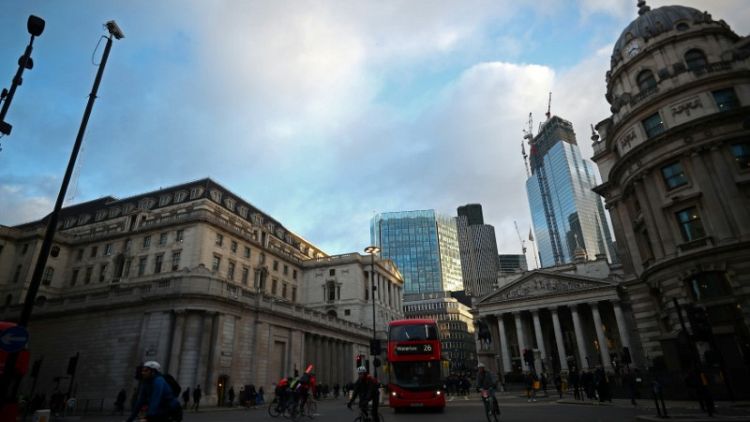LONDON (Reuters) - The Bank of England can probably raise interest rates only around once a year, given the weakening of the economy in Britain and around the world, and even that slow pace might be too much, a top policymaker at the central bank said.
Gertjan Vlieghe, one of the BoE's nine interest-rate-setters, said that a year ago he thought one or two quarter-point rate hikes a year was the most likely central case.
"I judge that the net balance of economic news has been to the downside. I therefore consider that the appropriate pace of monetary tightening is somewhat slower than I judged it to be a year ago," he said in a speech at the Resolution Foundation think-tank on Thursday.
Assuming that global growth does not slow a lot more, that Britain secures a Brexit transition deal and pay growth puts pressure on inflation, "around one quarter-point hike per year seems a reasonable central case", he said.
Vlieghe said there was "considerable uncertainty" around his forecast for rates and signs that the economic slowdown has continued into 2019 meant "a lot needs to go right" for it to prove right.
"I feel I can probably wait to see evidence of growth stabilising and inflation pressure rising before considering the next hike in Bank Rate," he said.
In the event of a no-deal Brexit, Vlieghe said he expected the BoE would keep interest rates on hold for quite a long time or cut them to help the economy.
Bank of England Governor Mark Carney and other top BoE officials have said the policy response to a no-deal Brexit would not automatically be to cut rates because a sharp fall in sterling would push up inflation.
Last week, the BoE slashed its forecasts for British growth due to Brexit and the global slowdown, and analysts said its latest projections implied two quarter-point rate rises over the next two years, compared with three expected in November.
Other central banks have also reined in their monetary tightening plans, led by the U.S. Federal Reserve which has suggested its three-year run of hikes is coming to an end. India's central bank last week cut borrowing costs.
(Writing by William Schomberg; Editing by Catherine Evans)



